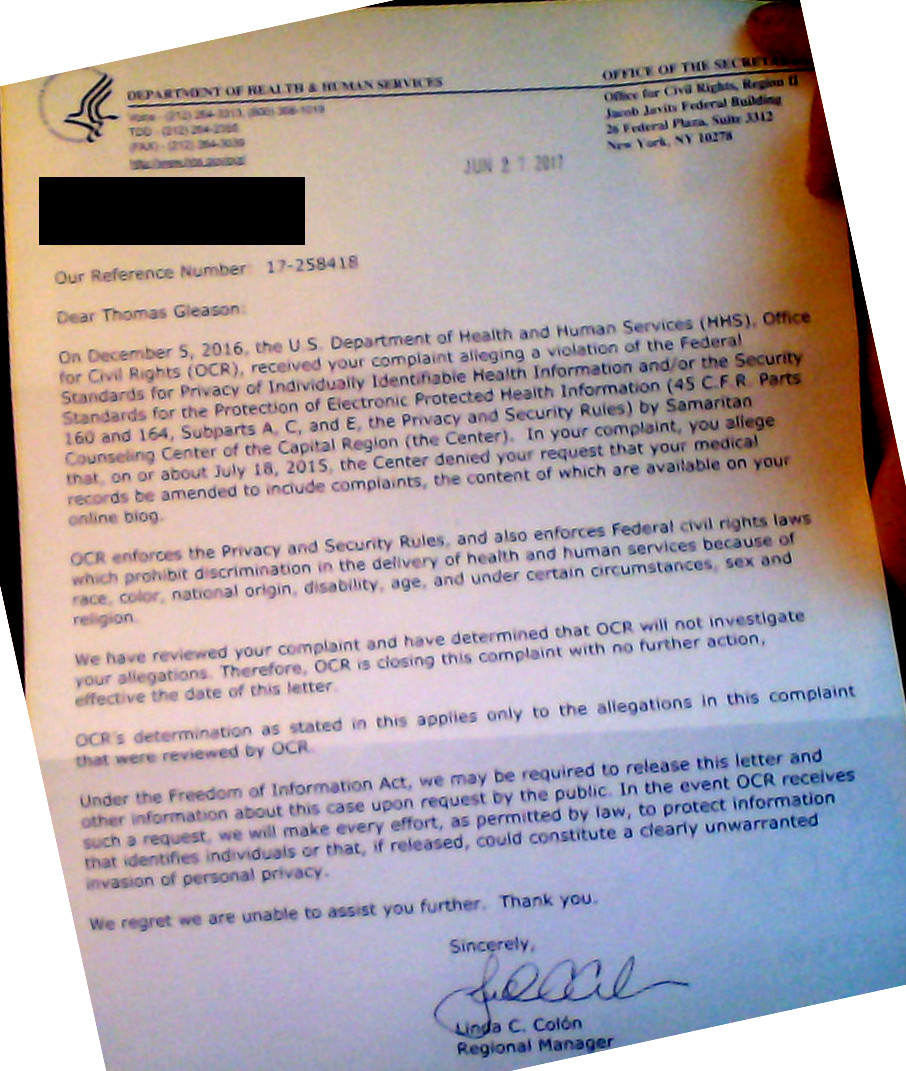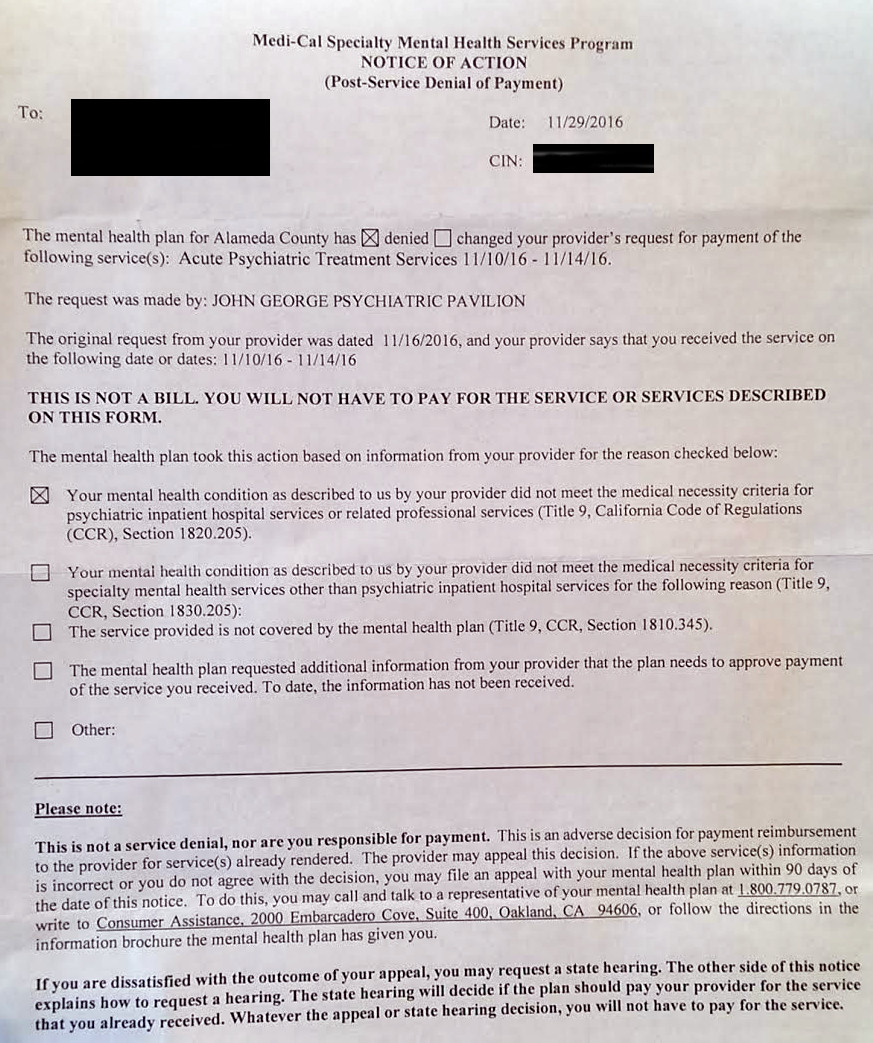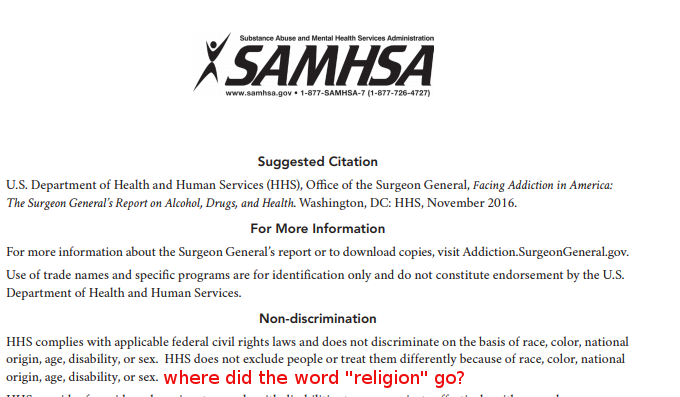I am sure many parents whose children have died after drug rehab become curious to know what exactly happened. I am concerned that dissent in rehab is not being correctly documented, perhaps even censored. I know this is possible because I have unsuccessfully attempted to get my complaints amended to my therapy records from Samaritan Counseling Center of the Capital Region (which is a HIPAA right). These included detailed accounts of my own experience which did not necessarily put all the professionals in a very positive light. Instead, I found that without these complaints, it looks like I was no more than tragically non-compliant and personality disordered due to ‘untreated alcoholism’. The two letters he sent me was the one telling me I could resume therapy if I went to 12-step programs, and the termination letter saying that I was no longer under any circumstances to contact anyone at Samaritan because I hand-delivered my complaint.
“Q: Is access to a deceased person’s psychiatric or substance abuse records treated any differently than access to other medical records?
A: HIPAA governs most healthcare providers and the records they keep; however, a different federal law governs many substance abuse programs (42 CFR Part 2). A substance abuse program can be covered under one, both, or neither regulation, depending on how it is funded.”
“In your complaint, you allege that on or about July 18, 2015, the Center denied your request that your medical records be amended to include complaints, the content of which are available on your online blog”





